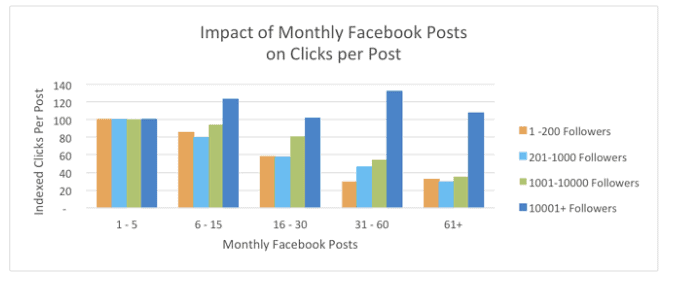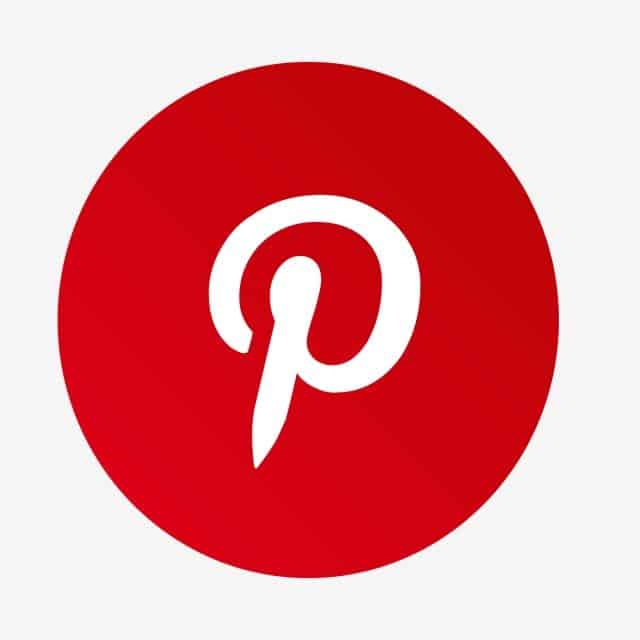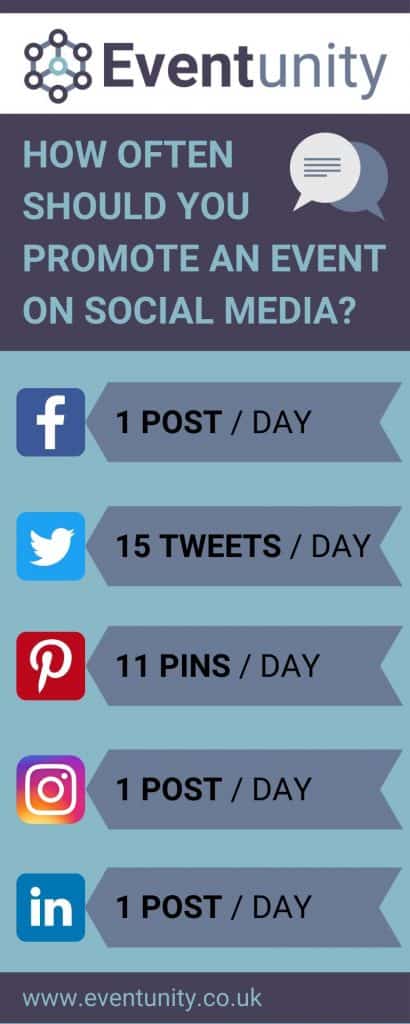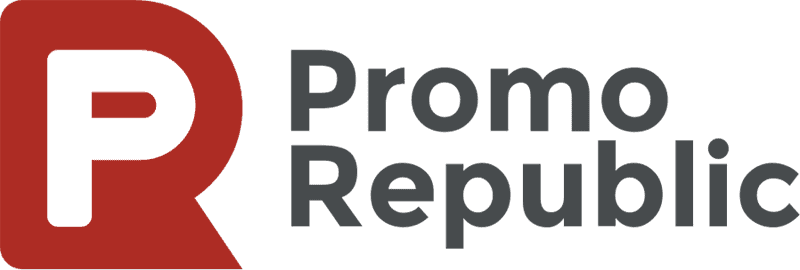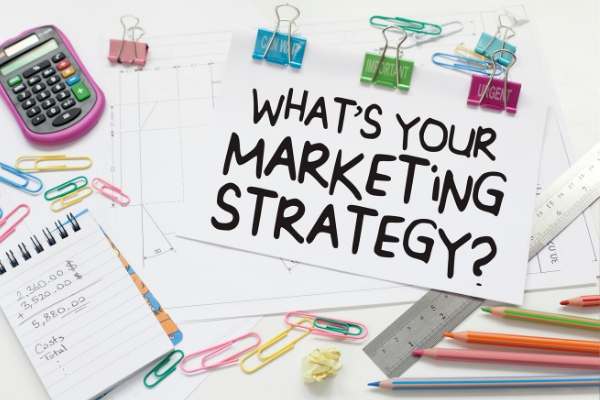Promoting an event well can make the difference between a full venue and empty seats. The best way to promote an event is to combine a clear message with targeted marketing using both online and offline methods to reach the right audience.
Understanding who your event is for and where they spend their time helps you plan how and where to get their attention.
Using social media, email marketing, and community partnerships can boost awareness and encourage attendance. Alongside digital tools, don’t overlook traditional methods like flyers or local groups to spread the word widely.
Key Takeaways
- Target your promotion to the right audience for better results.
- Use both digital and traditional channels to increase reach.
- Track your efforts to make smarter decisions next time.
Understanding Event Promotion
To promote an event well, you must know what makes promotion effective, what you want to achieve, and the common problems you may face. These points will help you plan and run your event marketing smoothly.
Defining Effective Event Promotion
Effective event promotion means reaching the right people with clear messages at the right time. It uses a mix of tools like social media, email, ads, and content marketing to create interest and drive attendance.
Your message should be simple and show the value of your event. Highlight key details like date, location, and what attendees will gain.
Using visuals such as images or videos can boost attention. Consistency is key.
Keep your branding and tone uniform across all channels. You want your audience to recognise your event easily and feel motivated to sign up.
Objectives of Event Marketing
Your event promotion must have clear goals. These usually include:
- Increasing registrations: Getting as many sign-ups as possible.
- Raising awareness: Making people know about your event.
- Engaging your audience: Encouraging interaction before and during the event.
- Building relationships: Creating connections for future events or sales.
Knowing your objectives guides your choice of marketing channels and messages. For example, if your goal is to raise awareness, social media posts work well.
If you want sign-ups, targeted email campaigns are effective.
Common Challenges in Event Promotion
You may face some challenges while promoting your event. One big issue is reaching the right audience without spending too much.
It can be hard to find and connect with people who really care about your event. Another challenge is standing out in a crowded market.
Many events compete for attention online, so your message must be clear and compelling. Timing can also be tricky; promote too early, and people forget, too late, and they don’t have time to decide.
Budget limits can restrict which channels you use. You need to balance cost with reach.
Using a well-planned mix of free and paid promotion options helps handle this problem. Learn more about these concepts in the Event Promotion and Communications Guide.
Identifying Your Target Audience
Knowing exactly who you want to reach shapes how you promote your event. You focus your resources better when you understand the different groups within your audience and know their needs.
Audience Segmentation Strategies
Divide your audience into specific groups based on clear criteria like age, location, job role, or interests. This makes your promotion more relevant and effective.
Use simple categories such as:
- Demographics: Age, gender, income level
- Geographics: Where people live or work
- Psychographics: Values, hobbies, lifestyle
- Behavioural: Past event attendance, spending habits
You can gather this data from surveys, registration forms, or online analytics. This helps you target your messages and offers to each segment.
Building Attendee Personas
Create detailed profiles representing your typical attendees. These should include their goals, challenges, and what they expect from your event.
A persona example:
| Persona Name | Age | Job | Interests | Goals |
|---|---|---|---|---|
| Emma | 35 | Manager | Networking, career growth | Learn new industry trends |
Think of personas as real people to guide your marketing tone and content. The more precise your personas are, the easier it is to attract the right crowd.
Use information from past events and competitor analysis to build them accurately. You can learn more about audience segmentation strategies at Top 7 Strategies to Determine the Target Audience for an Event.
Crafting a Compelling Event Message
Your event message must clearly show why your event matters and what makes it different. It should grab attention quickly and convince people to take action.
Focus on what your audience gains by attending and use clear, direct language to keep their interest.
Developing Your Event Value Proposition
Start by identifying the main benefits your event offers. Ask yourself: What will attendees learn? How will they feel? What problems will your event solve?
Your value proposition should answer these questions in simple terms. Use short phrases like “boost your skills“, “network with industry leaders”, or “discover new trends” to highlight benefits.
Avoid vague statements like “an unforgettable experience”. Be specific about what makes your event unique.
Once you have your value points, organise them in a few clear sentences. This helps your audience quickly see why they should join.
Key Messaging Tips for Maximum Impact
Keep your language clear and direct. Use bold headlines to grab attention and short paragraphs to make reading easy.
Include a call to action that tells people exactly what to do next, like “Register now” or “Save your seat today”. Personalise your message for your target audience.
Use words that match their interests and problems. For example, if your event is for small business owners, focus on growth and solutions rather than technical jargon.
Use stories or examples to make your message memorable. Share a brief success story or highlight a past attendee’s results.
This shows real value and encourages people to trust that your event is worth their time. For tips on effective wording, see this guide on event promotion wording.
Digital Promotion Strategies
When promoting your event digitally, focus on targeting your audience where they spend time online. Use tailored messages and clear calls to action.
Optimise each marketing tool to encourage sign-ups and build interest quickly.
Social Media Campaigns
Social media offers powerful ways to reach potential attendees fast. Choose platforms where your audience is most active, such as Facebook, Instagram, or LinkedIn.
Use eye-catching images and short videos to grab attention in crowded feeds. Create a content calendar that includes countdowns, speaker highlights, and behind-the-scenes posts.
Use hashtags related to your event to increase visibility. Engaging with comments and questions helps build trust and encourages sharing.
Paid ads can extend your reach. Set clear goals, like ticket sales or registrations, and target by location, age, or interests.
Track ad performance to adjust budget and messaging.
Email Marketing for Events
Email marketing lets you communicate directly with your audience. Start by segmenting your email list to send personalised invitations that match the interests of different groups.
Your emails should have a strong subject line to boost open rates. Include essential details upfront—date, time, location (or online platform), and registration link.
Use bullet points for quick reading. Send reminders as the event approaches.
A series of three to five emails is usually effective: an announcement, a follow-up, a last-chance reminder, and a thank-you after the event. Test different sending times to find what works best for your audience.
Event Landing Pages
A dedicated landing page acts as the hub for your event information and registration. It should have a clean design, fast loading speed, and be mobile-friendly.
Include a catchy event title, clear date and time, key benefits of attending, and profiles of speakers or performers. Use bold buttons for registration that stand out on the page.
Add testimonials or past event photos if you have them to build credibility. Keep the registration form short—only ask for necessary details like name and email to reduce drop-offs.
You can drive traffic to the page via social media posts, emails, and ads. Monitor visitor behaviour to optimise the page if people leave before registering.
For more ideas on promotion, check out this event marketing guide.
Leveraging Content Marketing
Using content that grabs attention and provides value is key to promoting your event successfully. You want to create materials that keep people interested and make them want to attend.
By focusing on the right formats, you can build trust and excitement before your event.
Creating Engaging Blog Content
Your blog posts should do more than just announce the event. Use your blog to share useful information that relates to your event theme or industry.
This could include tips, how-tos, or stories that connect with your audience’s interests. Break your posts into short paragraphs, use bullet points, and include images or quotes to keep readers engaged.
Make sure each post has a clear call to action, such as encouraging readers to register. Regular updates can also build anticipation.
Keep SEO in mind by using keywords people might search for related to your event. This will help new audiences discover your content.
Writing posts that answer common questions can increase your blog’s reach and provide value at the same time.
Utilising Video Marketing
Video marketing can show your event’s value in a direct, dynamic way. You can create short teasers or trailers that highlight key speakers, sessions, or attractions.
These videos are easy to share on social media and help grab attention quickly. Consider behind-the-scenes clips to show how you’re preparing for the event.
This builds excitement and makes your audience feel involved. Live streams or Q&A sessions with organisers or special guests can also engage viewers and encourage interaction.
Keep your videos short and focused, ideally under two minutes. Use captions for those watching without sound.
Posting videos regularly creates momentum and keeps your event fresh in people’s minds. Videos with clear calls to action can drive registrations effectively.
For more advice, you can check how to use content to grow your event reach at Content Marketing For Events.
Influencer and Community Partnerships
Using influencer and community partnerships can expand your event’s reach quickly. These partnerships help you tap into trusted voices and local support which builds interest and boosts attendance.
Collaborating with Influencers
Work with influencers who have followers that match your event’s audience. Focus on those with high engagement, not just follower counts.
Create clear, simple agreements about what content they will share and when. This can include social media posts, stories, or live videos.
Provide influencers with unique event details or early access. This helps them create authentic content that excites their followers.
Track the results by using promo codes, special links, or hashtags connected to each influencer. This shows which partnerships bring the best return for your effort.
Building Community Support
Reach out to local groups, clubs, and organisations that align with your event’s theme. Offer them incentives like discounted tickets or group rates to encourage participation.
Engage with community leaders by inviting them to participate or speak. Their involvement adds credibility to your event and encourages their networks to join.
Use local forums and social media groups to share event updates. Be active in conversations and answer questions to build trust within the community.
This approach connects you directly with people who are most likely to attend and spread the word about your event. For more on this, see ways to leverage local events and community activities.
Utilising Traditional Marketing Channels
Traditional marketing remains effective for reaching broad local audiences. You can use clear, direct messages delivered through familiar formats to catch attention and build trust.
These methods work well alongside digital marketing to boost event awareness.
Print Media and Outdoor Advertising
Print media includes newspapers, magazines, and flyers. Using targeted local newspapers or community magazines helps you reach people interested in local events.
Flyers and posters can be placed in busy areas like cafes, libraries, or community centres to grab the attention of passersby.
Outdoor advertising covers billboards, bus stops, and banners. These create high visibility in your event’s area.
When designing ads, keep text bold and concise for quick reading. Use strong images and a clear call to action, such as your event date or website.
Tips for print and outdoor success:
- Choose locations where your audience spends time
- Use large fonts and minimal text
- Include QR codes for quick event info access
Radio and Local Partnerships
Local radio offers a way to reach community members during their daily routines. Running short ads or sponsoring local shows helps you tap into loyal listener groups.
Mention important event details clearly and repeat your contact or ticket info.
Partnering with local businesses or organisations can expand your reach. You might co-host promotions, share flyers, or offer discounts to their customers.
These partnerships strengthen community ties and create word-of-mouth buzz for your event.
Key points for radio and partnerships:
- Target stations popular with your audience
- Keep messages clear and brief
- Collaborate with trusted local businesses for greater impact
Maximising Ticket Sales and Registrations
To boost your event’s success, you need strategies that encourage early commitment and widen your reach through existing attendees.
These methods help create urgency and reward word-of-mouth promotion, both essential for increasing ticket sales and registrations.
Early Bird Promotions
Offering discounted tickets well before the event date motivates people to buy early. This creates a sense of urgency and helps you predict attendance more accurately.
Set a clear deadline for your early bird offer to encourage quick decisions. Use bold messaging like “Save 20% if you book before [date]” to draw attention.
Advertise your early bird tickets across social media and email campaigns. Remind your audience as the deadline approaches to increase conversions.
You can also combine early bird offers with limited quantities to increase exclusivity and demand.
Referral Incentives
Encourage attendees to invite others by offering rewards when they bring friends to your event. This method expands your reach without high marketing costs.
Create a simple referral system where each person gets a unique code or link to share. Reward them with discounts, free merchandise, or upgrades when someone registers using their referral.
Promote the referral programme clearly on your event page and in communications. Make it easy to participate to boost sharing.
Referral incentives build trust because people are more likely to attend events recommended by friends or colleagues.
For more ways to increase ticket sales, see Winning Strategies for Increasing Event Ticket Sales Online.
Measuring and Optimising Event Promotion
To make the most of your event promotion, you need to monitor how well your efforts perform and adjust accordingly. This means understanding which channels bring the best results and how your audience interacts with your campaign.
Tracking Promotional Channel Performance
You should set up clear metrics to track each promotional channel, such as social media ads, email campaigns, or ticketing platforms. Key performance indicators (KPIs) to monitor include click-through rates, conversion rates, and the number of registrations driven by each channel.
Use tools like Google Analytics or platform-specific insights to collect data. Create a simple table to compare channels on metrics like:
| Channel | Click-Through Rate | Conversion Rate | Cost per Registration |
|---|---|---|---|
| Facebook Ads | 3.5% | 1.2% | £5 |
| Email Campaign | 4.0% | 2.5% | £2 |
| Ticket Platform | N/A | 3.0% | £0 (direct sales) |
This helps you identify which channels perform best and where to cut or boost spending.
Analysing Engagement and ROI
Check how engaged your audience is by looking at metrics like event page visits, email open rates, and social media interactions. High engagement often signals strong interest, improving chances of attendance.
Calculate your return on investment (ROI) by comparing the money spent on promotions against the revenue or value generated from ticket sales, sponsorships, or leads. Use this formula:
ROI (%) = (Revenue – Cost) ÷ Cost × 100
If your ROI is low or negative, re-evaluate your messaging, target audience, or channels. Tools that link promotional tactics directly to ticket sales or sign-ups make this easier and allow you to fine-tune your strategy in real time.
For more detail on planning and measuring event success, visit the Event Marketing Strategies guide.
Best Practices for Post-Event Engagement
You should focus on gathering clear feedback to understand your event’s success and use this information to keep your audience interested.
Following up effectively helps build trust and encourages future participation.
Capturing Attendee Feedback
Collecting feedback quickly after your event helps you learn what worked and what didn’t. Use short, clear surveys that ask specific questions about the content, speakers, and logistics.
Keep surveys brief to increase response rates. Send your survey within 24-48 hours for the best results.
Offering a small incentive, such as a discount or prize draw entry, can encourage more people to respond. Analyse the feedback carefully and look for common points.
Focus on fixing issues and highlighting strengths in your next event. You can also ask open-ended questions to get detailed opinions.
Sustaining Audience Relationships
Keep your audience connected by sending personalised thank-you emails soon after the event. Acknowledge their participation and share highlights or key takeaways.
Use follow-up messages to remind attendees about available on-demand content or recordings. Encourage them to engage on social media by sharing their experiences or photos.
Maintain regular communication with newsletters or updates about upcoming events. Building these ongoing relationships can increase loyalty and make your audience more likely to attend future events.
For more tips on maintaining engagement, see post-event strategies that work well here.
Frequently Asked Questions
Promoting an event well involves clear planning, smart use of digital tools, and understanding your audience. You need strategies that attract attention, keep people interested, and encourage them to participate.
What are the most effective strategies for promoting an event on social media?
Focus on using targeted ads to reach specific groups interested in your event. Post regularly with eye-catching visuals and videos.
Engage with followers by replying to comments and creating interactive content such as polls or live streams.
Could you suggest creative methods for event promotion that captivate audiences?
Try hosting contests or giveaways related to your event. Use storytelling in your posts to build interest.
Collaborate with influencers or local personalities to widen your reach. Personalised invitations can also make potential attendees feel valued.
What are the best practices for advertising an event to a university community?
Use campus social media groups and official channels. Post flyers in common areas and use student newsletters.
Partner with societies or clubs that match your event theme. Offering student discounts or incentives boosts attendance.
Can you provide examples of successful promotional events and what made them stand out?
Events that used clear, consistent branding and multi-channel promotion often succeed. For instance, a music festival that combined social media ads, email campaigns, and pop-up promotions gained high ticket sales.
Personalised messages and early-bird offers helped build early interest.
What tactics should be considered when promoting an event online to maximise reach?
Use a mix of paid and organic promotion. Optimise your event pages and posts for search engines.
Post content across multiple platforms like Facebook, Instagram, and local listings. Timing your posts to when your audience is most active improves engagement.
What are the key steps to effectively utilising Instagram as a platform for event promotion?
Create a custom hashtag for your event. Use Stories and Reels to share behind-the-scenes content.
Engage with followers by responding to comments and direct messages quickly. Collaborate with Instagram influencers for broader exposure.
Schedule posts consistently before the event date.



